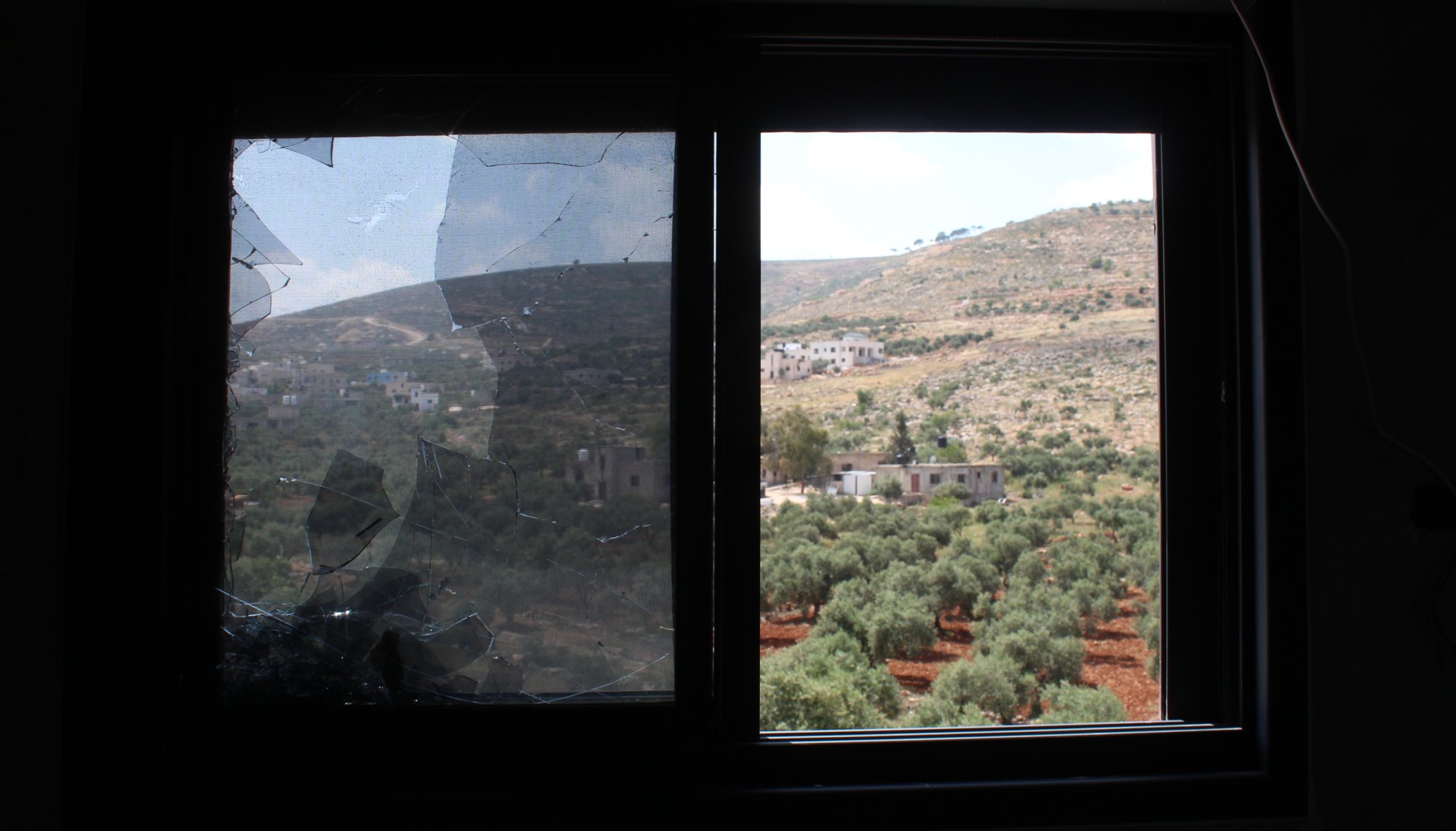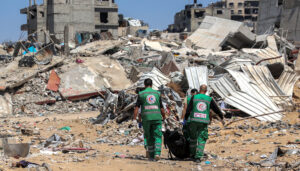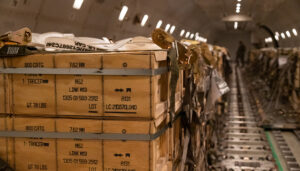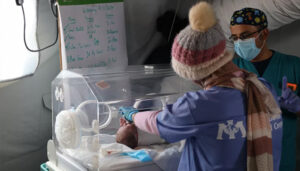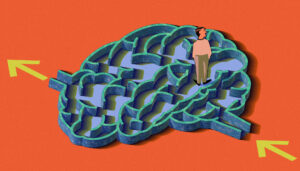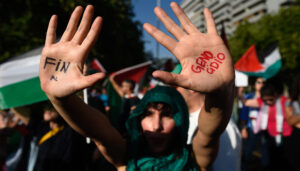[Editor’s note: This is part two in a three part fictional short story.] Part one.
‘Even now he is busy at work on his new house. God is great!’
Intent on paying a call to Abu Nimr, I made my way directly through the dog-leg in the narrow alley where high walls closed the heart of Zafana to the outside world. Abu Nimr’s new home came into view as I rounded the corner. He had built it to the rear of his plot, where the brush fence and the dovecote once had been. His tiny mudbrick hut was gone too, but the upper story of the gleaming new limestone house which had replaced it was not yet complete. Mason’s wedges protruded from the gaps between the wall courses and reinforcing bars sprouted from concrete pillars on the roof. Piles of sand and cement cluttered the front yard. My vision was drawn to movement in the upstairs window to the right. Orange flames were leaping over the sill.
Fire!’ I shouted instinctively, breaking into a run.
A man, who must have been crouching below the window when I called out, stood up suddenly in front of the blaze. He was Egyptian by appearance, wearing a headscarf and robe but his most arresting characteristic, in the circumstances, was his calm, unhurried manner. He peered down at the street quizzically.
Simultaneously, Abu Nimr emerged through the front door and broke into a guttural chuckle as he recognised me. He was clean-shaven, and clad in a new formal robe and an embroidered white kufiyya. Unlike Abu Bassam and most of the other villagers, Abu Nimr had never swapped his Palestinian papers for the new plastic identity cards which the Jordanian government had offered the refugees. He had shown it to me once, a large rectangle of folded cardboard annotated in faded ink with flowing copperplate handwriting, written out painstakingly by a British clerk in the 1930s. His image peered out from the sepia tones of the bleached print, framed in an elaborately cut border. He stared into the camera with the same roguish expression as he still possessed, yet caught in the vigour of early manhood, with his jet-black hair swept back and his debonair moustache a fine, black line. He looked rather like the legendary painter Dali as a young man.
‘Welcome to the house!’ he called out.
‘Mabruk, Abu Nimr! I have heard about your good news! But what is happening up there?’ I pointed urgently at the flames.
‘Do not worry about that,’ he grinned. ‘It is just a fire built by the builder who lives up there while he works on the house.’
Abu Nimr showed me into the stairwell, yet to be plastered and finished. To the right was a large room devoid of furniture, more or less fitted out as a barn. Various building supplies were stacked up against the walls, together with tools and bales of hay.
He motioned to the door leading off to the left.
‘Come into the salon.’
Abu Nimr’s parlour provided a striking contrast to the other ground-floor space, although the newly completed room retained, amidst its splendour, some of the simple touches of his old life. He ushered me into a gilt, wooden chair with burgundy upholstery and sat across from me on a matching sofa. The tiled floor was covered with a brightly coloured synthetic carpet, and upon that, a shiny coffee pot steamed on his old blackened gas burner. A colour television played silently in the corner and a large bouquet of mauve plastic flowers was stationed on a side table. Framed Koranic verses picked out in elaborate script hung on the walls, mounted in baroque frames. A large clock fashioned in the form of a giant red five-dinar note hung on the far wall, featuring a profile portrait of the king which gazed intently at the progress of the hour hand.
The old mudbrick house had still been there the last time I had visited, only a year ago. His wife, Umm Nimr, had cooked a meal on the same small gas burner that now formed the centrepiece of the splendid new parlour. We had sat together on folded hessian bags. There was no electricity, only a weak kerosene lamp to soften the shadows in the corners of the room. Umm Nimr was a small, arthritic woman who breathed slowly. She sat cross-legged next to her husband, tending the pot and tapping his knee intermittently to remind him to offer his guest more food or more tea. The couple’s only son, Nimr, had died long ago as an infant, but Umm Nimr’s dark eyes seemed to reflect the grief as if it had only been yesterday. She smiled sadly each time that I glanced at her. While nibbling on a large chicken bone, Abu Nimr detailed his wish-list of gifts for my next visit.
‘You should bring me a folding knife, like your red one with the cross on it; with two good blades, one large and one small, then the tiny pair of scissors, and the can-opener and bottle-opener too.’




